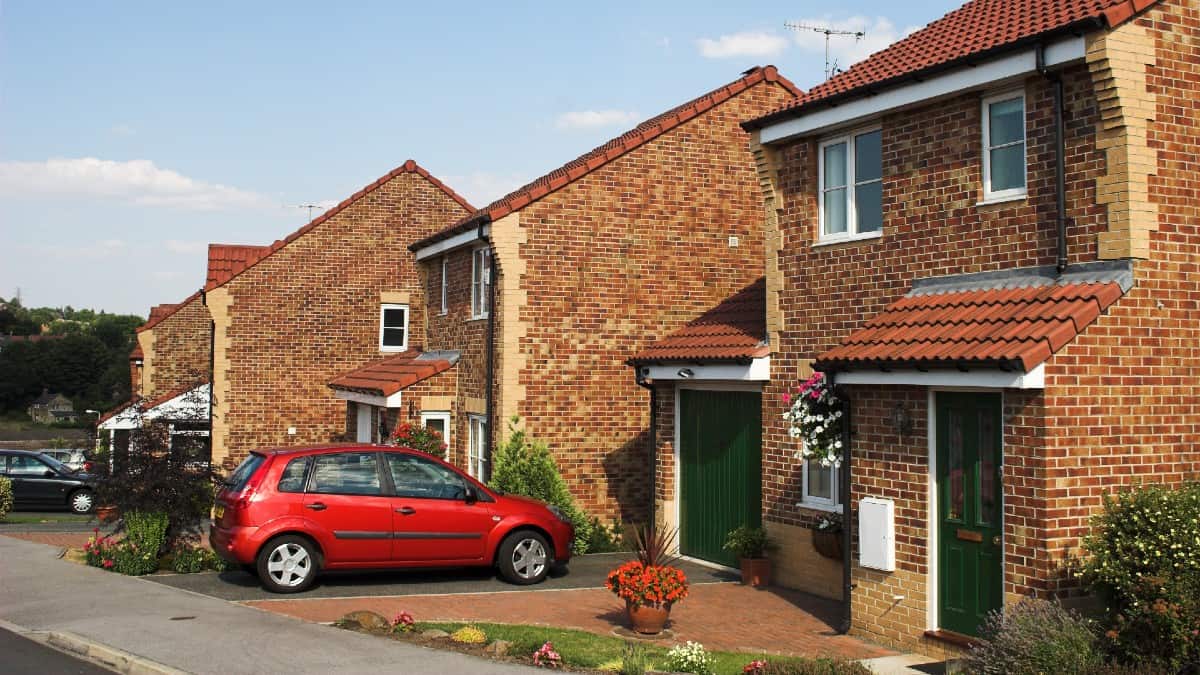According to Halifax, the average UK property now costs £272,992. This is over £20,700 more than this time a year ago, suggesting house prices are climbing by a staggering £1,700 a month.
So what does this mean for first-time buyers? And should homeowners be worried about a future house price crash? Let’s take a look.
[top_pitch]
Should you invest £1,000 in Lloyds Banking Group right now?
When investing expert Mark Rogers has a stock tip, it can pay to listen. After all, the flagship Motley Fool Share Advisor newsletter he has run for nearly a decade has provided thousands of paying members with top stock recommendations from the UK and US markets. And right now, Mark thinks there are 6 standout stocks that investors should consider buying. Want to see if Lloyds Banking Group made the list?
What does the latest House Price Index tell us?
According to Halifax’s November House Price Index, the average cost of a property now stands at £272,992. This is a tad higher than the latest ONS statistics, which suggest the average home costs £270,000.
To put this into context, an average home now costs almost 11 times the average UK salary after tax. This is before any student loan repayments are taken into account – an additional cost faced by many first-time buyers.
This means that budding homeowners on an average salary are unlikely to save enough each month to keep up with constantly rising house prices. Savings rates are also pitiful right now, making it especially difficult for those attempting to grow their deposit.
So is there any hope for first-time buyers in the form of a future house price crash?
When will a house price crash happen?
Many first-time buyers believe a future house price crash presents their best chance of eventually owning a home. And while some non-homeowners may already have saved enough for a deposit, some will undoubtedly be sitting tight and hoping for a price drop in the near term. That’s because some may consider the current housing market as a textbook example of an asset bubble.
Other hopeful buyers may be reluctant to sign their name on a long-term mortgage at current prices. That’s because, aside from being tied to debt for several decades, any future house price crash could easily dump them into negative equity.
Whatever your situation, it’s important to recognise that predicting the housing market is almost impossible. Despite this, here are some factors that may indicate a house price crash is just around the corner:
1. Current prices aren’t sustainable
House prices are already stretching price-to-earnings ratios, and a point will come where further rises will hit the ‘breaking point’ for future buyers. Aside from increasing mortgage terms, something will eventually have to give.
2. Rising inflation is likely to continue into 2022
Inflation is already running high, and it doesn’t look like that’ll change any time soon. The Bank of England’s chief economist even admitted that inflation could hit 5% next year.
With this in mind, mortgage providers may soon begin to cut back on ultra-cheap deals, given the rate at which the UK’s currency is losing its value. And more expensive mortgages can lead to lower house prices.
3. Interest rates will almost certainly rise
On a similar note, the Bank of England will be under increasing pressure to increase its base rate next year. If the rate goes up, this will make borrowing more expensive for mortgage lenders. This will likely result in them raising their own mortgage rates, which may calm rising house prices.
4. Government support may taper off
The government has a number of schemes to ‘support’ the housing market. Yet many of these schemes, such as the 95% mortgage guarantee scheme, simply increase the number of people able to afford a home. As a result, such schemes increase demand, which increases house prices.
With no new policies announced for 2022, less government intervention may lead to lower house prices next year. [middle_pitch]
What would a house price crash mean for existing homeowners?
While any house price crash will be welcome news for first-time buyers, such an occurrence would technically make existing homeowners poorer.
Despite this, a house price crash would only impact existing homeowners in the real world if they plan to release equity in their homes in the near future, own more than one property or want to downsize.
For those simply living in their house, any loss will only be suffered on paper. In fact, for those keen to move to a more expensive property, a crash could actually be good news. That’s because the prices of more expensive properties are likely to fall by a greater amount than their existing home.
Are you looking for a mortgage? See The Motley Fool’s top-rated mortgage deals.







